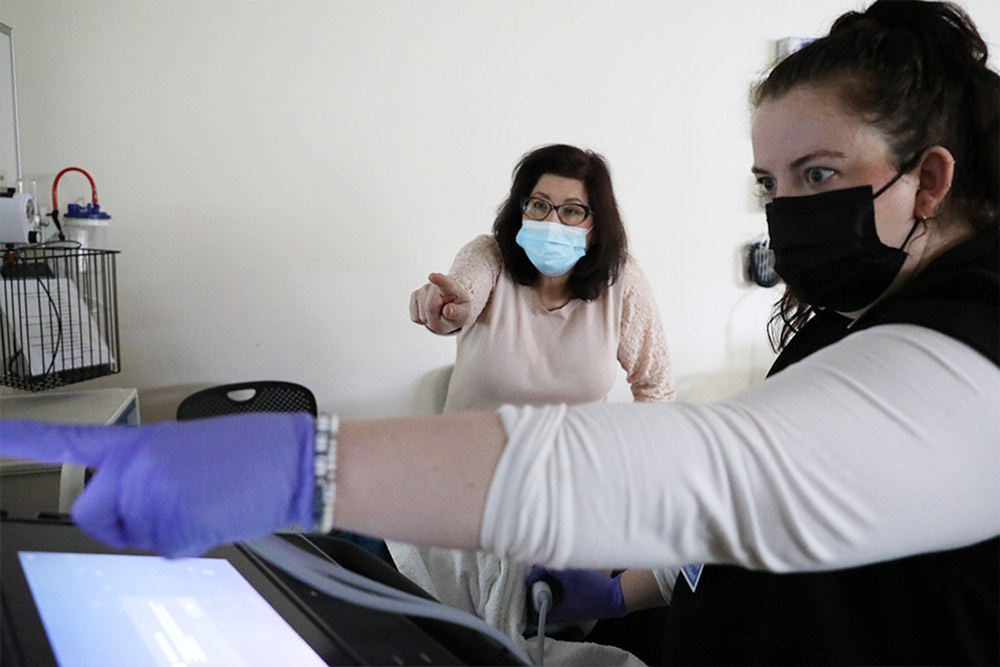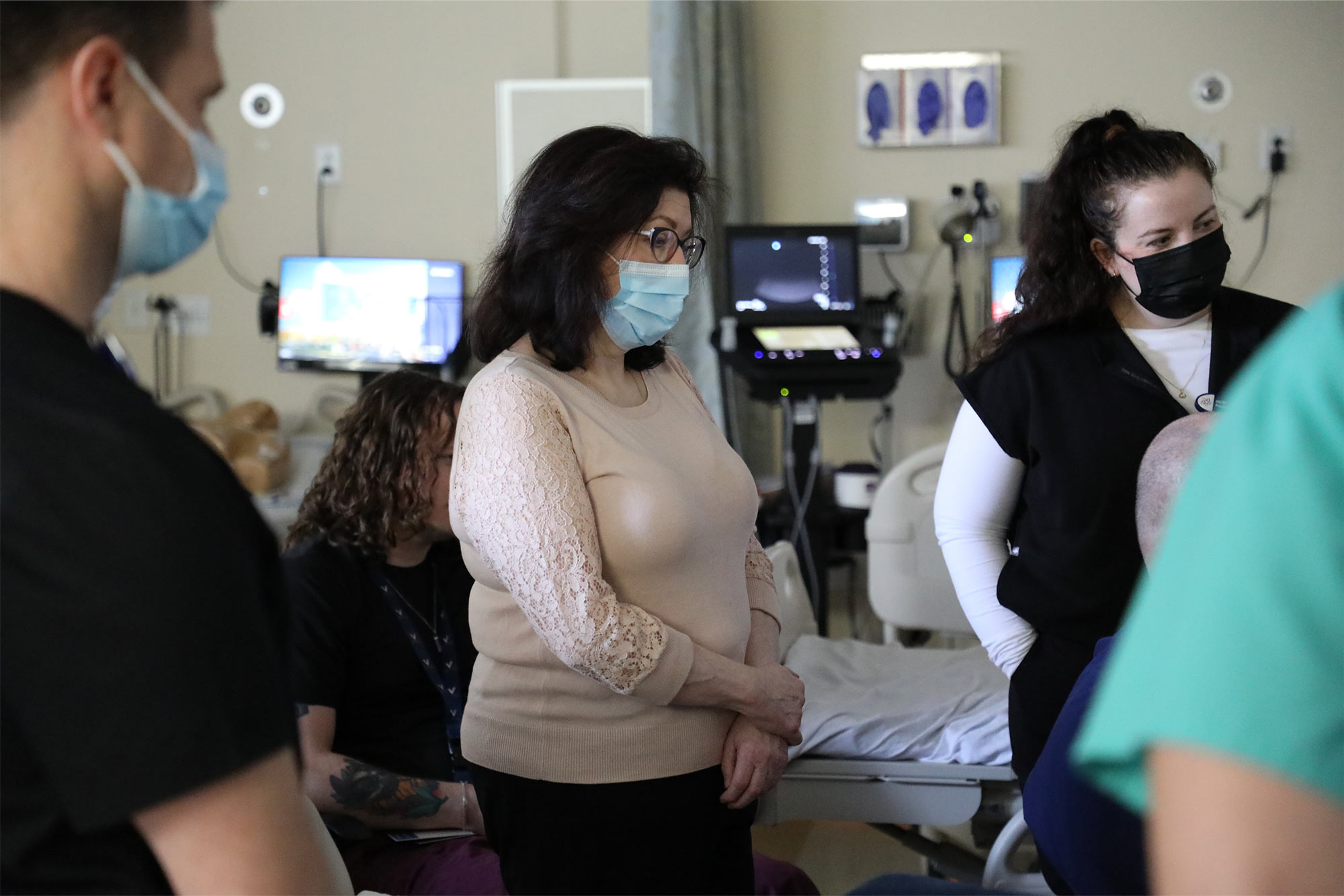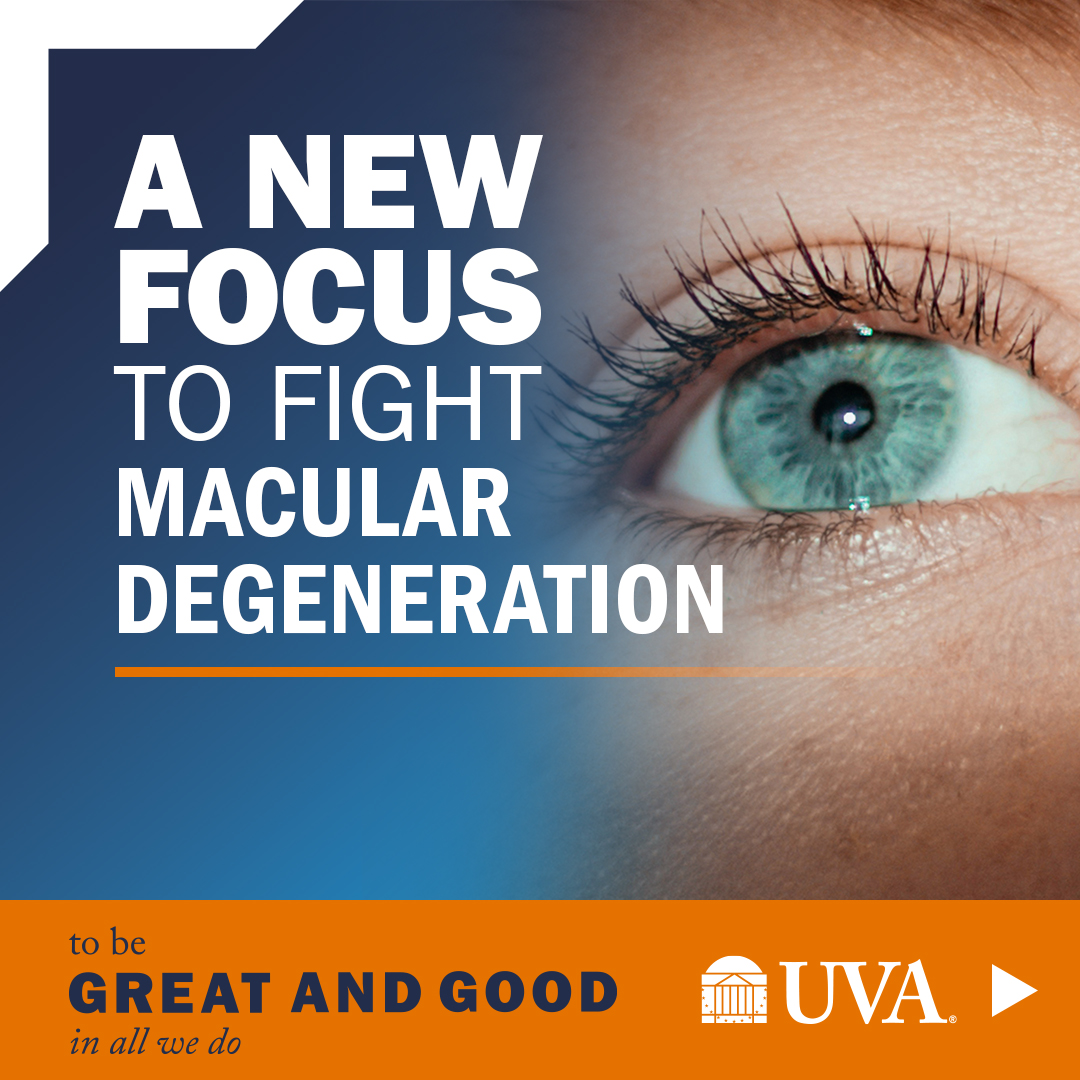The emergency room patient was coughing convulsively and breathless. She’d been told she would need an exploratory catheter inserted into her heart to diagnose her condition.
Emergency room nurse Joy MacMichael, who was caring for the woman, immediately remembered the course she was enrolled in at the University of Virginia’s School of Nursing.
She and her classmates had just listened to a lecture on the different ways pneumonia can present. They had discussed how aspiration (when food or liquid enters the airway and lungs by accident) could similarly cloud a chest X-ray, raising potentially unwarranted alarm and unnecessary, invasive, often painful tests. MacMichael, a family nurse practitioner who works in Sentara’s cardiology department, urged the pulmonary team that had ordered the catheterization to slow down and step back. Then she gently turned to the patient: Was she having any difficulty swallowing?
The older woman nodded, MacMichael ordered a swallowing study and cancelled the catheterization – all thanks to a topic her professors had presented the week before.
“We could have put this woman through a risky procedure, instead of focusing on other medical conditions and possibilities,” MacMichael said. “That lesson, what I’d learned, was immediately relevant and made a difference in real time.”
MacMichael is one of a half-dozen nurse practitioners who recently completed a new yearlong acute care certification program at UVA. The program aims not just to ensure every nurse is properly certified, but also to improve the hospital chain’s quality, safety, patient outcomes and nurse retention.
“Acute care education is important and verifies that you have the skills and knowledge to function safely in these environments,” said Mary Morin, Sentara Healthcare’s vice president of clinical effectiveness and employee health services. “I have a strong interest in [nurse practitioners] being able to help care for patients in the hospital environment and be full partners with our physicians. This is a great model; it’s the right model, and our nurses bring something special to the table.”
UVA’s nursing school offers hybrid learning for students across many of its graduate programs. Students do much of their learning online, but come together in person occasionally as well. That puts it in competition with completely online nursing programs, some of which are unaccredited. Still, hospital systems like Sentara with specific educational needs have come knocking for tailor-made education programs for their staff nurses.

Lavoie, a urology nurse in Woodbridge, said the program has expanded her knowledge and experience. (UVA School of Nursing photo)
Sentara began requiring all newly hired nurse practitioners working in acute care environments to be acute care-certified in 2021. Many staff nurses who’d specialized in other areas, like MacMichael, were grandfathered in. Still, Sentara offered them another option, too: apply to UVA’s yearlong certification program and earn an acute care certificate. Sentara would foot the bill for tuition, books, monthly travel to UVA in-person class and meals. The School of Nursing would create the curriculum, led by nursing professor Clareen Wiencek, and help organize their clinical rotations. The students would do the rest.
If the students came in a little dubious, they quickly engaged and left true believers.
“Before, I only had bedside nursing experience to base things on,” explained Sentara family nurse practitioner Meghan DeHart, who works in cardiothoracic surgery at Sentara’s Norfolk General Heart Hospital and Virginia Beach locations. “It was a lot of memorizations and trying to imagine how I’d apply concepts without ever having encountered them. [UVA’s] program offered a lot of refreshers with immediate application, and some new education outside my current specialty.”
She often found herself saying, “Oh, I remember this; this is why we do this; this makes sense,” DeHart said. “It’s making those connections, and having the confidence to know, ‘OK, we learned about this in school.’”
The program required the nurse practitioners do clinical rotations in environments unfamiliar to them – a cardiac nurse practitioner working in the ER or neurology, for example. Consequently, the nurses said, it made them better at their day jobs in real time.
“Working in urology, the patient care approach is more focused on the surgical problem and can be a bit tunnel-visioned,” said Janice Lavoie, a nurse practitioner who works in urology at Sentara’s Woodbridge hospital. “The opportunity to rotate with the hospitalist team [in general medicine] has definitely broadened my knowledge and increased my confidence.”
For some, the program whetted their appetite for further study. Lavoie will enter UVA’s Doctor of Nursing Practice program in the fall.
Morin is encouraging more of Sentara’s 40 eligible nurse practitioners to step forward. Earlier this spring, a second cohort of seven nurse practitioners began their yearlong journey to acute care certification.
Each cohort costs Sentara about $120,000, funds Morin called “money well-spent.”
“These nurses are role models for advanced practice,” Morin said. “UVA has made them feel really special, too, and Clareen has really made the students feel well cared for and provided tremendous support of them. That makes all the difference in the world.”
Media Contact
Article Information
May 2, 2024






